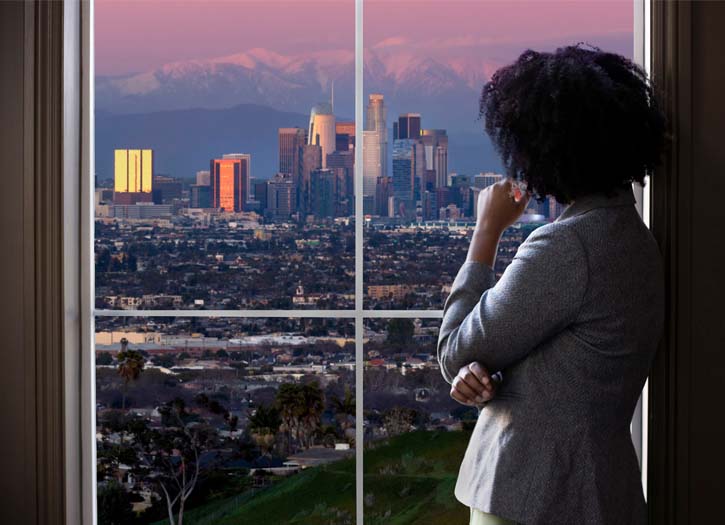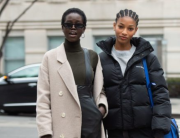The Struggles Women Face in the Workplace
Women, in general, spend a lot of time trying to gain the respect, acknowledgement, and opportunities they deserve while managing their careers. The struggle for equal pay and equal opportunities is still a thing, even in 2021. Black women, however, have even more to be concerned about than women of other races.
There are well-documented reports and studies regarding disparities that most women face in the workplace but black women have some unique circumstances. Not only do black women deal with the same inequalities as other women, although usually at a higher level, they also deal with obstacles that are specific to black women only. From stereotypes of being angry, aggressive, and unapproachable to being lazy and hard to get along with. You can also add the unprofessional stereotype due to the unacceptance of the way some black women choose to style their hair, such as in braids or locs. Being black and female comes with unfair consequences, unfortunately.
The Doubles
If black women could master the corporate doubles like they did the game of double-dutch, they would have no problems reaching their career goals on a faster trajectory. If they could manage to dodge the bullets of corporate politics the way they maneuvered around those two strands of ropes as a teenaged girl to double-dutch jump rope with speed and rhythm without getting hit by them we would likely not have to keep talking about how unfair they are treated.
Black women find themselves entangled in the web of doubles at work: Double Negatives, Double Standards, and the Double Bind. The double negatives come from the two identifying characteristics she cannot change about herself, being black and being a woman (racism and sexism). Double standards take place when there are things that others do and they are accepted or the response is not harsh, but when a black woman does the same thing they are frowned upon or judged more harshly. The double bind is when a woman is characterized as being too aggressive when she leads with skills that are considered masculine. These are basically the same skills or traits a man displays when functioning in their professional roles and they are deemed acceptable for him. On the other end of the double bind, a woman is viewed as weak when she displays more of her softer, nurturing, feminine traits. This double bindties her hands and puts her in a position of feeling like there is nothing she can do that will be deemed satisfactory. On top of being damned if she does and damned if she doesn’t, the expectations of black women are much higher than those of white women. Black women have to work twice as hard as white women to get the same opportunities and/or recognition.
Because of the burden of the doubles many black women deal with unbearable amounts of stress and anxiety, which if unchecked, leads to physical and mental health issues. Sometimes the unfair treatment becomes too much and they end up resigning their positions. For those who remain in place, to cope, they resort to code switching and shifting in order to fend off stereotypes or to make others feel comfortable. They conclude that in order to get ahead, they have to diminish or camouflage parts of themselves to be accepted. Unfortunately, being unauthentic is the only solution that brings a portion of peace for many black woman working in corporate America. This is a problem. Black women should be able to be who they authentically are when at work, as long as they are doing their job well and professionally. They should not have to leave parts of themselves at the door in order to get along and to be respected when they enter their workplaces. Nor should her talents and skills be overshadowed by biases and stereotypes, but instead recognized and rewarded.
Changing the Status Quo
This is not a new phenomenon. These biases against professional black women have been going on for years. Although there has been some marginal improvements there is still a lot more progress that needs to be made. It’s time that real efforts to make systemic and sustainable changes regarding racism and sexism in the workplace are actualized. This is not an issue that black women can tackle on their own. Men and women of different races must step in and use their privilege and voices as allies for the black woman. Black women must also stick together and advocate for each other as well. It will take this collective effort to see real change.
Companies need to do more to level the playing field for black women. Some of the things they can do are:
- Be more intentional about understanding the obstacles that black women face and work with them to develop solutions.
- Create a workplace culture that is safe for black women, and women in general, to speak up about their concerns without fear of retaliation, especially in male-dominated industries.
- Realize that equity and inclusion must be a part of the solution. Having diversity in the population or a token representation of black women or minorities is not sufficient enough.
- Ensure that black women have equal access to mentors, sponsors, and leadership development programs and ensuring that access is not impeded by bias-based obstacles.
- Create goals, benchmarks and processes to monitor and measure effectiveness of equity and inclusion initiatives where women are concerned.
- Include more black women in decision-making roles on every level of the organization, from entry-level to the C-suite.
- Be more culturally aware and sensitive to the needs specific to black women.
Our country seems to be moving in the right direction by recognizing the talent, and expertise of black people but the progress is slow. We celebrated our first black president when Barack Obama was nominated for 2 terms. In November of 2020, for the first time in the history of U.S politics, the double negative was turned into a double positive when Kamala Harris was nominated as the first black women vice president.
As black women continue to obtain a college education at a higher percentage, start more small businesses than any other race of women, and slowly infiltrate politics, media, technology, and other industries, making genuine efforts of diversity, equity, and inclusion a top priority and a part of their strategic plan is what major corporations and small companies alike need to do to embrace the intelligent and worthy black woman and untangle the web of doubles that have trapped so many for so many years.
This feature was submitted by Jackie D. Robinson
Jackie D. Robinson is founder of SheBoss Unlimited, a leadership and professional development company for career-driven, high-achieving and high-potential women professionals and women entrepreneurs. She also offers her consulting services to small to mid-sized companies who are interested in developing women-focused programs or seeking coaching for their female employees. Jackie is a certified professional development coach and diversity trainer with over 20 years of experience as a success strategist and is passionate about empowering women to position themselves for advancement opportunities by continuing to sharpen their professional skills, understanding how to navigate the obstacles that women face in corporate America and business, being on point with their executive presence, and developing a mindset that will prepare them to go for what they deserve in their careers or entrepreneurial pursuits.







This article is spot on! As a black woman who has just recently re-entered the corporate world, I often reflect on the tools my grandmother shared with me as the first black supervisor at Merchants and Planters Bank in Sherman, TX. It’s unfortunate that more than 40 years later, I am faced with some of the same challenges she experienced. Jackie does a beautiful job of shining a spotlight on those challenges. Thank you for sharing the truth that is so often difficult to express.
Excellent read! I enjoyed this as a black woman professional. I agree, education and entrepreneurship are important keys for black women to make change.
This article speaks volume to the current situation in today’s corporate world. Its sad to read and say how unfair we are treated and so often overlooked for leadership roles regardless of our well documented educational background. We have to push and push before we are given a chance to show our greatness but just like so many of our great leaders, Kamala Harris. We can’t give up or give in to stereotypes and we must continue to refine ourselves and break down doors and shatter glass ceiling! Great article…keep motivating and shed light on a dark situation!
Excellent article! As a black woman in a healthcare leadership role there is not many that look like me. This has been an issue for far to long. We need to continue to encourage one another to seek higher positions with equal pay. I agree we’re headed in the right direction & we must never stop. Thank you Jackie for continued awareness to this issue.
Thank you Jackie for this article of insight! The youthful game of Double Dutch is so accurate in describing how one can navigate thru their struggles in the workplace! Most of us over time as a child/youth mastered Double Dutch. Most of us. It somehow prepared us that we would need to jump up while bending over to dodge all the things that come to trip us up. So I am reminded thru your writing of what is current and prevalent before us yet with a glance back reminder that we must use the tools of our past, the knowledge of today and the wisdom of God to navigate thru it all while not confirming but overcoming the adversarial disadvantages in the workplace. Thank you again!
Great article and very insightful information. Thank you Jackie!!!
This article is well written and so true. Despite the negativity as to how others view black women…We Are…
Beautiful
Courageous
Powerful
Intelligent
Change Agents
Fearfully & Wonderfully Made
Peace and blessings to you my sister.
Thank you for this very insightful and timely article as we continue into 2021. These are the conversations that need to continue to be on the forefront while we tackle the Web of Doubles for Black Women in Corporate America. We must be the change by carving out our place in the areas mentioned by Jackie i.e. politics, media, technology, and other industries as well as Corporate America. We must continue to rise above and be intentional with our strategies to position ourselves so that we can mentor and elevate others along the way. Bravo Jackie!
This article is right on time. Although we have made much progress with the recent election of our first African American Vice President, we still have a way to go with bringing awareness and effecting change to the struggles and challenges faced by African American women in our professional lives.
Awesome article!! Motivating and enlightening. Thank you for publicly acknowledging and bringing to the forw fromt what we woman know and have had to deal with. We shall keep moving forward and makimg strides.
I agree! You could not have said it better….. A workplace culture that is safe for black women must be created. There are many struggles that we as black women face in the workplace. We have to do twice as much to get at least half of the recognition. At times, we have to deal with being treated unfairly and judged twice as hard. I have experienced this treatment in the workplace and it was so hard to stay on top. The support was not there. You are so correct….More black women need to be in decision-making roles and equity & inclusion initiatives must be part of the solution.